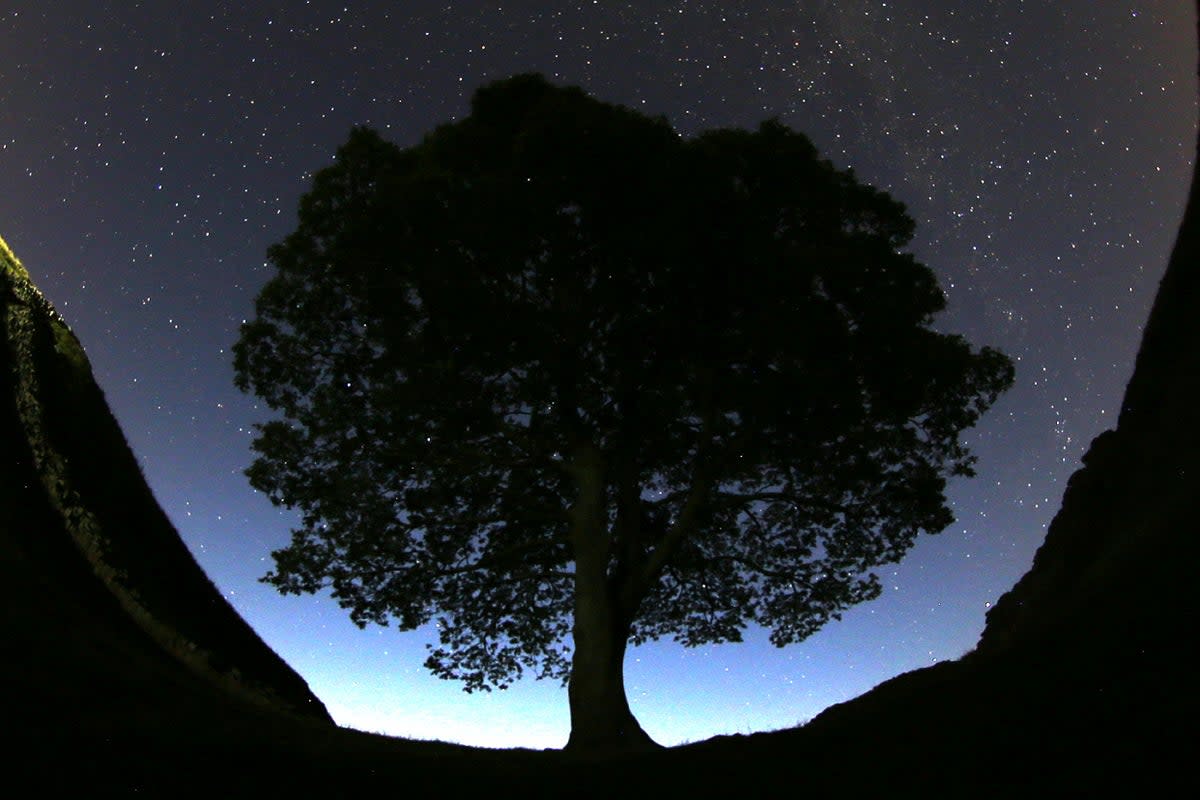Sycamore Gap tree given new life at top-secret lab
Shoots from the rescued seeds and twigs of the Sycamore Gap have sprung up in a secret National Trust laboratory, fuelling hopes the iconic tree will regrow after it was cut down with a chainsaw.
Scientists acted fast, grabbing young cuttings thrown to the ground when the tree fell before whisking them off to a high-security Devon greenhouse guarding genetic copies of the UK’s most precious plants.
Five months on in the lab which keeps its exact location shrouded in mystery, tiny shoots are regrowing with nine grafted plants and 50 seedling clones that could be used as back-up in case the stump doesn’t regrow naturally.
There was an outcry when the tree was illegally chainsawed in September, with Northumberland National Park saying it had received 2,000 “heartfelt” messages from people around the world expressing sorrow. Two men remain on bail.

Historic England said Hadrian’s Wall had suffered damage during the act of vandalism, and the future of the famed tree has been uncertain until now.
The tree stump remains in its original spot, in the hope it will regrow in time, and there is currently a low fence in place to give the tree the best chance of regrowth.
But to generate clone back-ups, horticulturalist Rachel Ryver collected young twigs with buds from the fallen tree – the raw material for grafting genetic copies.
She told the BBC: “It was drying out fast – we had to save whatever we could. Hours later I was standing at Hexham post office thinking, ‘nobody knows I’m carrying what’s left of the Sycamore Gap tree.’”

The lab contains genetic copies of Sir Isaac Newton’s apple tree that inspired his theories on gravity, and an ancient yew tree that witnessed King Henry VIII’s relationship with Anne Boleyn.
Juliet Stubbington is carrying out grafting, an ancient technique that binds fresh roots with living twigs that will have buds of the same species.
Scientists hope the two will knit together to make one larger living young tree.
“It is the same tree,” she said. “It’s lovely to help them grow back. Each one of these trees is a story.”
It will be three years before horticulturists know if the stump is healthy enough to produce the next tree.
“The felling of the Sycamore Gap tree has shown just how much nature and landscape mean to people, to their very wellbeing,” Tony Gates, chief executive officer of the Northumberland National Park Authority, said.
“As stewards of the legacy of Sycamore Gap, the partners have been humbled by the outpouring of love and emotion for the tree. We understand the diversity of opinions surrounding a future legacy and are committed to navigating this journey with the utmost care and respect. We are grateful for everyone’s patience and understanding.
“We are determined to honour the spirit of Sycamore Gap through opportunities to connect with the tree, and to create a legacy for both people and nature.”


